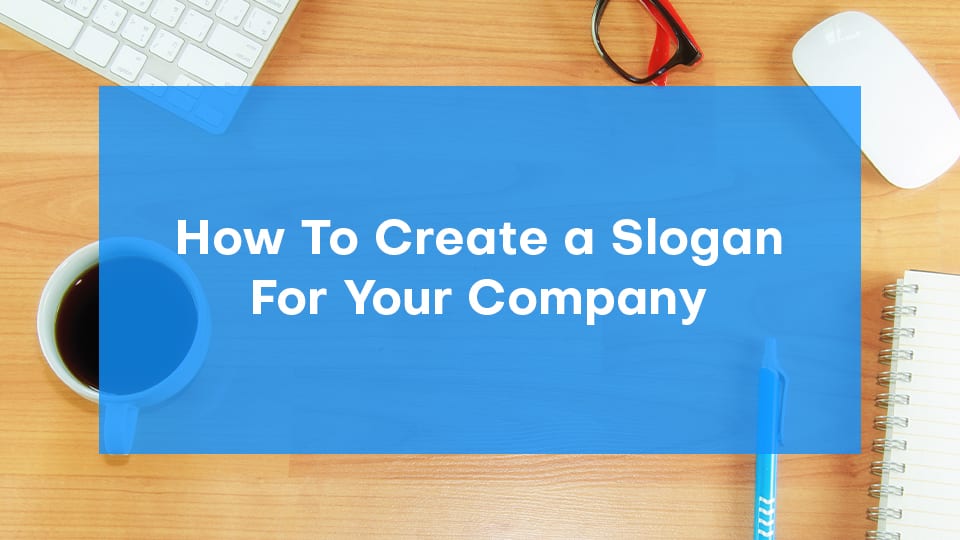As two of the largest digital advertising platforms, Google and Facebook offer businesses a wealth of advertising opportunities. Which platform is best for you depends on your goals and the size, location, and nature of your business.
Facebook Ads and Google Ads are often compared to one another, yet they’re actually complementary. They each have their own set of advantages for marketers.
If you only have the resources or the budget to focus on one, there are a few things you’ll want to consider.

Understanding the Importance of Online Advertising
Before you can choose between Facebook or Google, it helps to understand why online advertising is so vital for businesses.
What is Online Advertising?
Online advertising is the use of web-based channels (paid) to promote your business and drive traffic to your website. It’s highly measurable and trackable–and thus extremely effective at generating leads, sales, and impressions, all while understanding your ROI and KPIs.
Why Online Advertising is Important
If you want to help customers find your brand, you need to be a part of their search. You need to assist them in a way that convinces them of the superiority of your product/service. The customer journey has changed dramatically; it has become more complicated and interconnected than ever before. Online Advertising gives you a way to stand out from the crowd.
Online Advertising can help you with the following:
- Increase brand awareness and identity
- Showcasing brand reputation via online reviews
- Understand buyer behavior and customer journeys
- Provide a trackable omnichannel marketing approach
- Use multiple touchpoints to increase brand awareness and conversions
- Provide reminders to curious consumers to follow through with your goal
What are Google Ads?
Historically, Google Ads was a pay-per-click (PPC) platform in response to search queries, although it has now expanded into several different forms of media including video ads, image/display ads, and mobile text ads.
The common ways to advertise your brand on Google Ads are as follows:
- Search Ads – Google’s Search ads feature advertisements, which appear similar to organic listings but at the top of the SERPs, based on search terms.

- Google Display Network – The GDN is a collection of websites across the internet that host Google display ads. The GDN includes millions of websites in addition to YouTube channels, Gmail, and more.

- Video Ads – Video-based advertisements, such as those on streaming sites like YouTube (the second largest search engine worldwide that Google also owns), are available with video ads. These ads may also be seen in video format across the Google Display Network.

- Google Shopping Ads – Google Shopping Ads are specifically used for eCommerce businesses. They allow your products including pictures, pricing, and more to be displayed in response to specific keyword searches.

Common reasons why advertisers use Google ads:
- Google holds the title for the largest search engine in the world, with 167 billion monthly Google searches.
- Ads that respond to search queries allow you to reach potential customers who are actively showing a high level of interest in what you offer.
- Google Ads provides the ability to connect with customers via highly-targeted messages based on their intent.
- Google provides measurable and trackable results which allow advertisers to continuously optimize performance and scale effectively.
- The platform gives businesses a customizable toolkit that helps you accomplish your unique campaign goals (traffic, conversions, or branding).
What are Facebook Ads?
Facebook ads appear on Facebook and Instagram (They use the same back-end advertising platform as Instagram is owned by Facebook). These ads can be paid for by either the click or the impression, where you pay every time your ad is shown to users. There are a number of other bidding strategies offered, but CPC (cost per click) and CPM (cost per thousand impressions) are two of the primary options used.

Common reasons why advertisers use Facebook ads:
- The sheer size of Facebook’s audience – The majority of US adults (over 80 percent) use Facebook
- According to a recent poll by Pew Research Center, 91 percent of adult internet users in the U.S. use Facebook each month, and 71 percent visit it daily.
- Facebook’s comprehensive understanding of its users combined with their tools for advertisers makes Facebook a powerful platform to market your small business.
- Detailed interest targeting based on interests of their target audience
- Easily analyze performance with detailed data and analytics
Understanding the Differences between Google Ads vs Facebook Ads
Now that you have a better understanding of both platforms, we’ll dive into the differences between Google Ads vs Facebook Ads.
Google Ads vs Facebook Ads: Audience Comparison
First, let’s talk about size. Facebook and Google each have over one billion monthly users so it’s safe to say they both have massive audiences.
According to eMarketer, Facebook has a total of 1.73 billion daily active users and Google handles around 5.8 billion searches every day.
Given how huge both audiences are, this data isn’t particularly helpful in determining which advertising platform is preferable for your business, as it simply concludes that both platforms have a lot of your potential consumers on them.
Google Ads vs Facebook Ads: Buyer Intent
Okay, so size isn’t everything. Let’s break down the two platforms in terms of buyer intent in relation to your ads.
This shows us where customers are in the customer journey and what actions they may take with your ads.
When looking at buying intent concerning Google Ads vs Facebook ads, Google Ads wins this comparison 99% of the time. If users are actively searching for something, then they are very likely to click on your ad and make a purchase more quickly.
Conversely, Facebook advertising is categorized as interruptive advertising which means the user is not actively looking for a product.
They may be casually scrolling through their newsfeed on Facebook or Instagram, and then they see your ad. Even if your ad is extremely relevant to the user, they are not in the same decision-making mindset as somebody actively searching for a product on Google.
This doesn’t mean Facebook Ads aren’t effective. Just in comparison to Google, they typically lead to a longer buying journey as the users are not actively searching for your solution.
In short, Google Ads allows businesses to instantly reach people who are actively expressing interest in what they have to offer which leads to unmatched buyer intent.
Google Ads vs Facebook Ads: Cost and ROI
Now that we’ve looked at the two platforms in terms of their audiences and buyer intent, let’s talk about the cost and ROI associated with each platform.
The first thing to note is costs can vary drastically due to a number of factors, but one of the main differentiators is your industry.
For example, if you work in the B2B (business to business) industry, then you can expect to pay substantially more compared to say, a low-priced online B2C (business to consumer) retailer.
For instance, a marketing agency like Purebred Marketing might pay a $25 per click, whereas a small eCommerce t-shirt shop might sell $25 t-shirts where they could never be profitable paying $25 per click.
But, the advertising platforms use bidding options to allow businesses of all sizes to succeed.
So in this case, while the marketing agency can be profitable paying a $25 CPC because the leads they capture will be worth thousands of dollars per month, the t-shirt company may only pay $.25 per click which could allow them to achieve the margins they desire.
This scenario works across both Google Ads and Facebook Ads to try to give businesses of all kinds a chance to succeed.
Now let’s step outside of CPCs and CPMs and look at a metric like CPA (Cost Per Action). CPCs and CPMs may vary drastically between platforms and even different advertisers within the platform, but at the end of the day, your CPA on each platform is what truly matters.
You can get all the clicks or impressions in the world, but if you don’t achieve your desired action (lead, purchase, etc), the clicks and impressions don’t necessarily correlate to you achieving your goals.
CPAs will help you determine if your business is producing the results that you need and want.
So, looking at your CPA on Google Ads and Facebook ads is a much better comparison metric than your cost associated with clicks or impressions.
Google Ads vs Facebook Ads: Targeting Option and Features
Both Facebook Ads and Google Ads offer options for targeting specific audiences. You can target prospects by location, gender, age, and income level among other categories across both platforms.
Between Google Ads vs Facebook Ads, Facebook has much more robust targeting options. For instance, there is no way to target in Google Ads similar to how Facebook can let you advertise to people who like your page or posts.
Google interest targeting is broader, while Facebook targeting is so specific that you can target fathers of children under 12 months old who are interested in football and attended a specific college.
There’s give and take here.
That allows you to cater very specific creatives and copy to your audience on Facebook which you’re unable to do on Google.
However, keep in mind that even though Google’s interest targeting isn’t as robust as Facebook’s, the keyword intent on Google allows your corresponding ads to be extremely specific as well.
There are two key targeting elements which both platforms allow you to utilize:
- Lookalike Audiences: A lookalike audience is a group of users who are presumed to share qualities with another set of users, like your best customers or website visitors
- Remarketing and Retargeting Audiences: Retargeting is a type of online targeted advertising in which ads are tailored to consumers based on their previous online activity like website visits, add to carts, and more.
Conclusion
This is how I’d sum up this entire article debating Google Ads vs Facebook Ads; there is no one size fits all approach.
Both platforms are incredibly powerful if utilized properly.
One thing to note is that both platforms are extremely robust and can be overwhelming. Therefore, it takes a ton of time and dedication to gain expertise on these advertising channels.
It’s imperative that you work with an expert or are thoroughly trained before you launch your ad campaign on either platform, or you’ll experience the same thing many new advertisers do with these platforms: your entire budget flushed down the drain.
There are clear differences in Google Ads vs Facebook Ads, but in the end, it all comes down to your own business goals and taking the time to learn about both platforms.
If you’d like more information on Google Ads vs Facebook Ads, or need help with your digital ads, please email contact@purebredmarketing.com.




